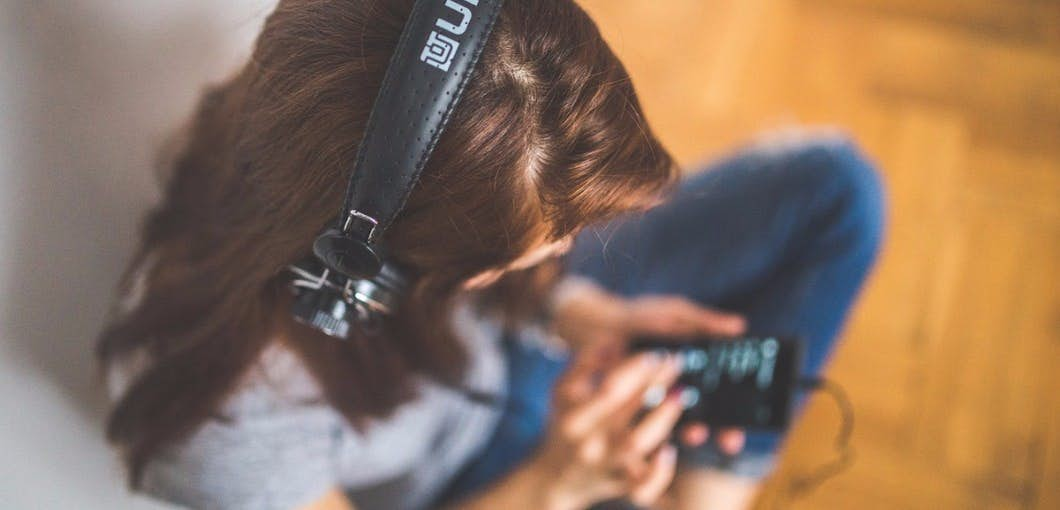
Music as a cancer medicine may sound like the kind of woo-woo, New Age stuff that scientific-minded people despise. In earlier ages, many cultures had a different take. The ancient Greeks believed wholeheartedly that music healed body and soul alike.1
And Native Americans used it as part of their healing rituals.2
Did it actually work? I wasn’t there to see if Greeks or Cherokees recovered their health, but modern inquiries say music is medically effective.
Music not only helps you heal faster… it also reduces pain, improves your mood, lowers stress, promotes better sleep, helps you release negative emotions, and even helps you communicate better.3
Let’s look at the scientific findings and see how we can put them to work for our own health.
Music touches our spirit in ways medication can never hope to.
An unresponsive patient cried when his family played him ‘Amazing Grace.’ Another patient who’d been comatose remembered hearing music while unconscious.4
"Music’s most precious contribution to individuals undergoing cancer treatment is how it can stir a person at the core, bringing out and honoring the real person behind the diagnosis and allowing for more freedom of self-expression," says Dr. Deforia Lane, director of music therapy at the University Hospitals of Cleveland Ireland Cancer Center.5
A patient doesn’t need any music training to benefit from music. "The ability to respond to music is natural within every person," says Dr. Barbara Reuer, director of MusicWorx Inc., a music therapy practice and training program in San Diego.6
Is your body yearning for the healing power of music?
Music can relieve anxiety and pain,7 and reduce the side effects of chemotherapy8 and radiation therapy.9
Your brain uses the same neurotransmitter to feel pain as it does to listen to music. If you feel pain and hear music at the same time, neither one reaches your brain with full intensity. This means you feel less pain when listening to music.
Some patients have reduced their dependence on pain medications by listening to music during cancer treatments.10
Listening to music also relaxes your muscles and dilates your veins. This makes certain procedures — like bone marrow aspirations — less painful.11
Music can improve your mood12,13 and reduce anxiety14,15 which in turn can speed healing.
At Indiana University, researchers found that adolescents and young adults going through high-risk, high-intensity stem cell transplants were more courageous, felt less isolated, and interacted better with their families when they listened to music during treatments.16
These "side effects" reduced depression and improved healing.
Researchers also found that listening to music reduced patients’ anxiety during and after chemotherapy.17
Joyful music can make your blood vessels grow about 25 percent larger. This improves blood flow and helps your body get more oxygen and nutrients.18 Not only does this have the potential to lower blood pressure, but it also aids recovery from cancer, since cancer hates highly oxygenated environments.
Other researchers found that when you sing or play an instrument, you increase the number of germ-fighting immunoglobulins in your saliva.19
Music can also speed physical rehabilitation. Rhythms and repetitions in music can help you move more easily and cover greater distances. Formerly immobile patients have relearned how to use their bodies while listening to music.20
What kind of music?
Any kind. Really.
No one type of music is inherently more therapeutic than the rest.21
People are different and respond to different types of music, according to Dr. Lane.22
If you’d like to benefit from music, you can write a song, play an instrument, or just listen to live or recorded music… of any genre.
Music therapy is more about your preferences, circumstances, and goals than about the "proper" style of music.23 There’s no one size that fits all, according to professional music therapists.
What rhythms, melodies, tones, harmonies, and lyrics help ease your fears, express your concerns, and relax your body and mind? That’s the right music for you.24
But you do need more than just background music. You actually need to be fully engaged in the music… in a focused, intentional way.25
There are two types of music therapy — active (playing an instrument or singing) and receptive (listening to recorded or live music).26
Here are ways to make music
part of your cancer protocol
Actively listen to music that either matches your mood or changes your mood.
Listening to music that matches your mood can help you sort out what you’re feeling and why.
If you’re in a funk, music can help change your mood. To relax, listen to music you find soothing. To manage pain, chose music that distracts you.27 Your choice could be jazz, rock, or whatever.
Make a playlist on your phone or iPod, and take it with you to doctor’s appointments and therapy sessions.
It will make you relaxed and better able to benefit from your treatment. And you already know that stress does your body no favors.
Sing, hum, play, or dance along.
Participating in music helps you regain motion, boosts your energy, and encourages your body to heal, both physically and emotionally. For women with breast cancer, dancing can help you feel more graceful and feminine.28
Write and record a song.
Don’t judge your mistakes. Let go of your desire for perfection.29
Create a musical environment.
Listen to the ambient noise around your home. What do you hear? Car engines? Dogs barking? Try covering these noises with sounds that help you relax… like ocean waves or birds chirping.
Experiment with something new.
It’s comfortable to listen to music we know and love. But expanding your musical palate can help you focus on the music and reap additional benefits.30
Best regards,

Lee Euler,
Publisher




